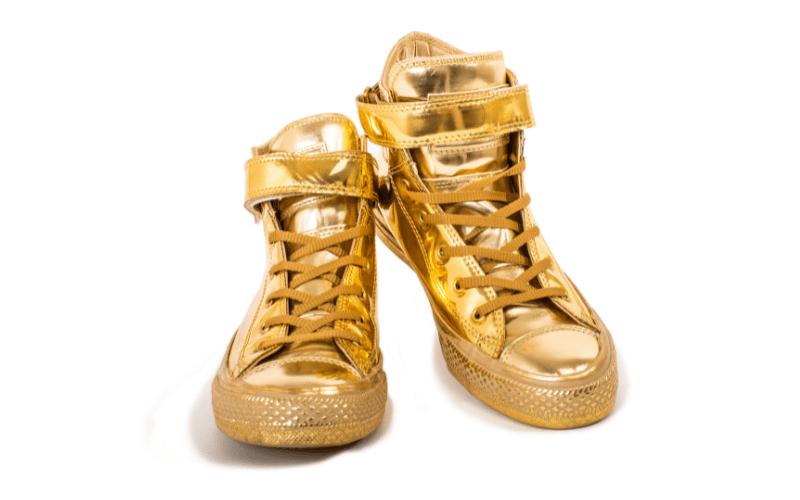Trump and the Art of Stiffing People Who Trust You
In 2016, running for president, Donald Trump had this to say to Norah O’Donnell during an interview on CBS This Morning:
“I’m the king of debt. Nobody knows debt better than me. I’ve made a fortune using debt, and if things don’t work out, I renegotiate the debt. I mean, that’s a smart thing, not a stupid thing.”
“How do you renegotiate debt?” O’Donnell asked.
“You go back and say, guess what, the economy crashed,” Trump explained. “I’m going to give you half back.”
Just so no one would consider that a slip of the tongue in an unguarded moment, Trump doubled-down on CNBC. “I love debt. I love playing with it. I would borrow, knowing that if the economy crashed, you could make a deal. If the economy was good, it was good. So, therefore, you can’t lose.”
In other words, the United States government, the lynch pin of the global economy, would void its debts, declare bankruptcy, and stiff all those who had trusted its full faith and credit.
Trump’s View on Debt: His Profit or His Lenders’ Loss
I recalled Trump’s views on debt the other day when he threatened to let Russia do “whatever the hell it wants” to any NATO ally that didn’t fully pay its share for NATO defense.
Apparently, for others, debt is such a sacrosanct obligation they even deserve to lose their freedom if they fail to honor it. But for Trump, debt is a playground where debt either results in Trump’s profit or his lenders’ loss.
This not only is his view of how things work, it’s his business history.
His companies have gone through six bankruptcies. The word “bankruptcy” is a legal term that doesn’t convey the hardship it causes for those who lose their investments and employees who lose their jobs.
The Burden of Trump’s Failures Fall on Others
After Trump’s Atlantic City Taj Mahal opened in April 1990, he owed $70 million to 253 contractors, mostly small local companies that employed thousands of workers. A year later, when Trump declared bankruptcy, those owed the most got only 33 cents in cash for each dollar owed.
Trump encouraged his employees to invest their retirement savings in company stock. When the company collapsed, the stock price fell from a high of $30 to 36 cents. Employees lost their savings as well as their jobs.
The New York Times reported later that Trump used his company to issue rounds of junk bonds that transferred his personal debt onto shareholders. “Even as his companies did poorly, Mr. Trump did well,” the Times wrote. “He put up little of his own money, shifted personal debts to the casinos and collected millions of dollars in salary, bonuses and other payments. The burden of his failures fell on investors and others who had bet on his business acumen.”
So Who Will Pay Trump’s Mounting Debts?
That acumen will be sorely tested in weeks to come. Unless Trump can turn things around on appeal, Trump’s debts will include:
$355 million, the penalty ordered by the judge in his civil fraud trial.
$100 million or so in interest on profits he was ordered to give up, a number that increases each day it remains unpaid.
$88 million to writer E. Jean Carroll for damaging her reputation after she accused him of sexual assault.
$110,000 for refusing to comply with a subpoena in the civil fraud case and another $15,000 for disparaging the judge’s law clerk in violation of a gag order.
$400,000 to the New York Times in legal fees for suing the New York Times unsuccessfully.
$938,000 a court ordered Trump to pay Hillary Clinton for filing a frivolous law suit against her.
And tens of millions to pay his own legal fees.
That all adds up to more than half a billion dollars. I wonder what the judges will say when the “king of debt” tries to settle for half of what he owes.
Barring that, if past history is a guide, contributors to the Trump campaign and the Republican National Committee likely will be on the hook for much or all of this debt.
Or maybe he will pay out of the profits from “Trump-sneakers,” a line of gold color high tops he just launched for $399 a pair.
“Trump-sneakers?” Somehow those words together just feel so…..right.
Comments? Criticism? Contact Joe Rothstein at jrothstein@rothstein.net



What happens when a fun-loving, charismatic, reform-minded Mexican-American billionairess becomes president of the United States and strikes fear in the pocketbooks of a cabal of the rich and powerful?